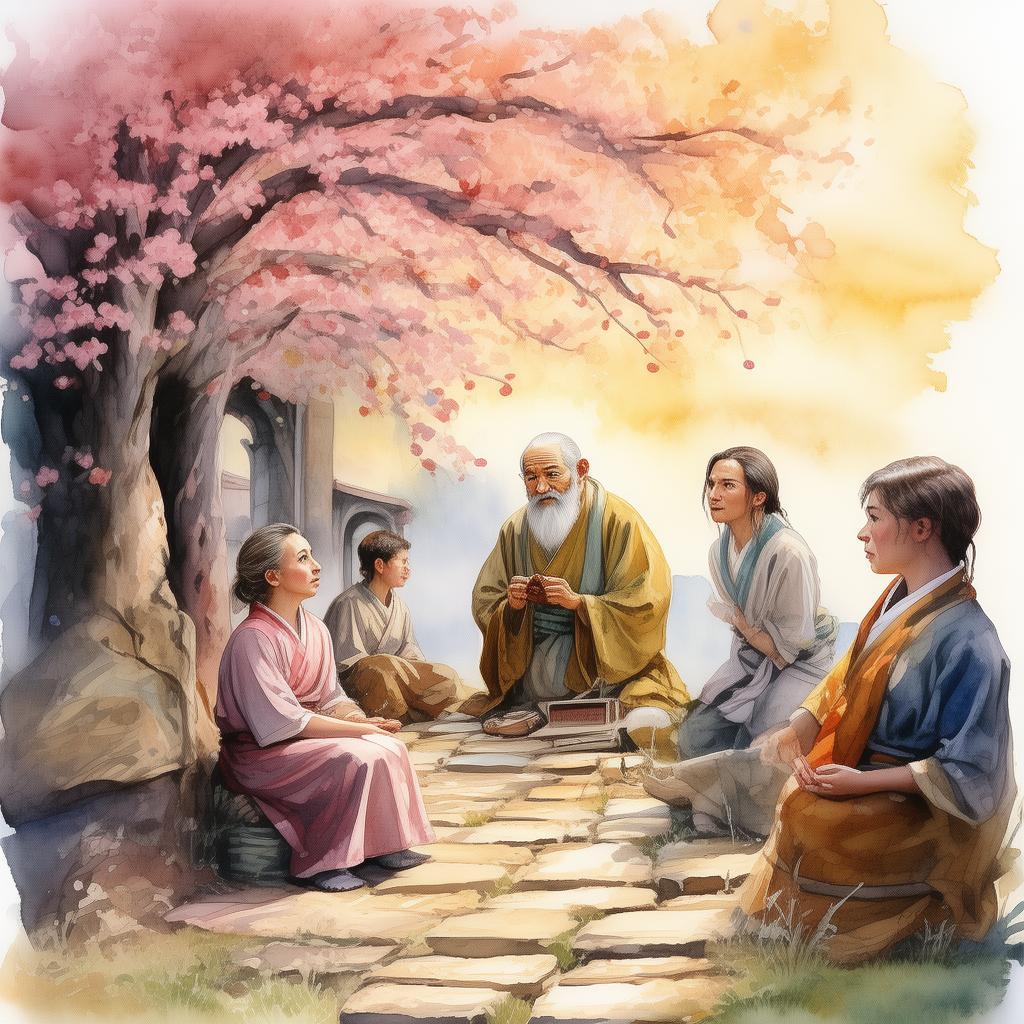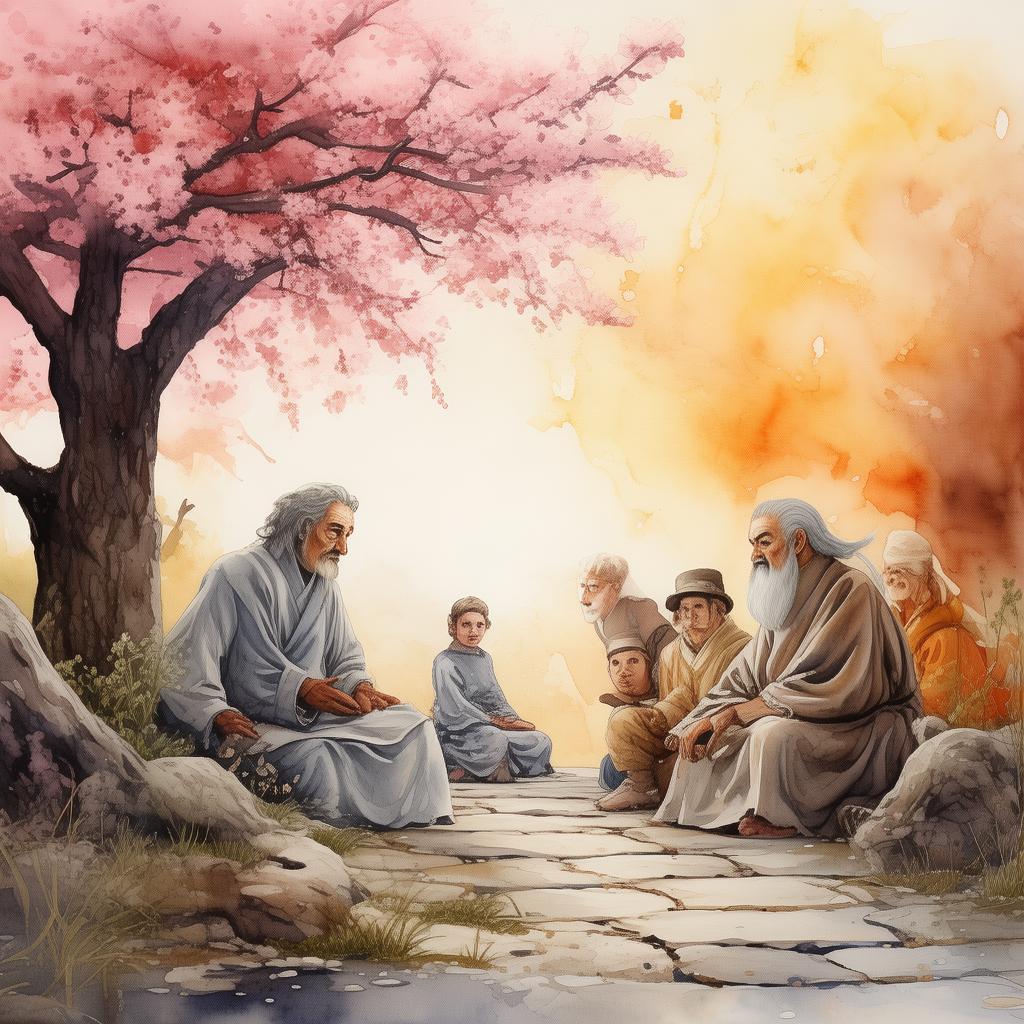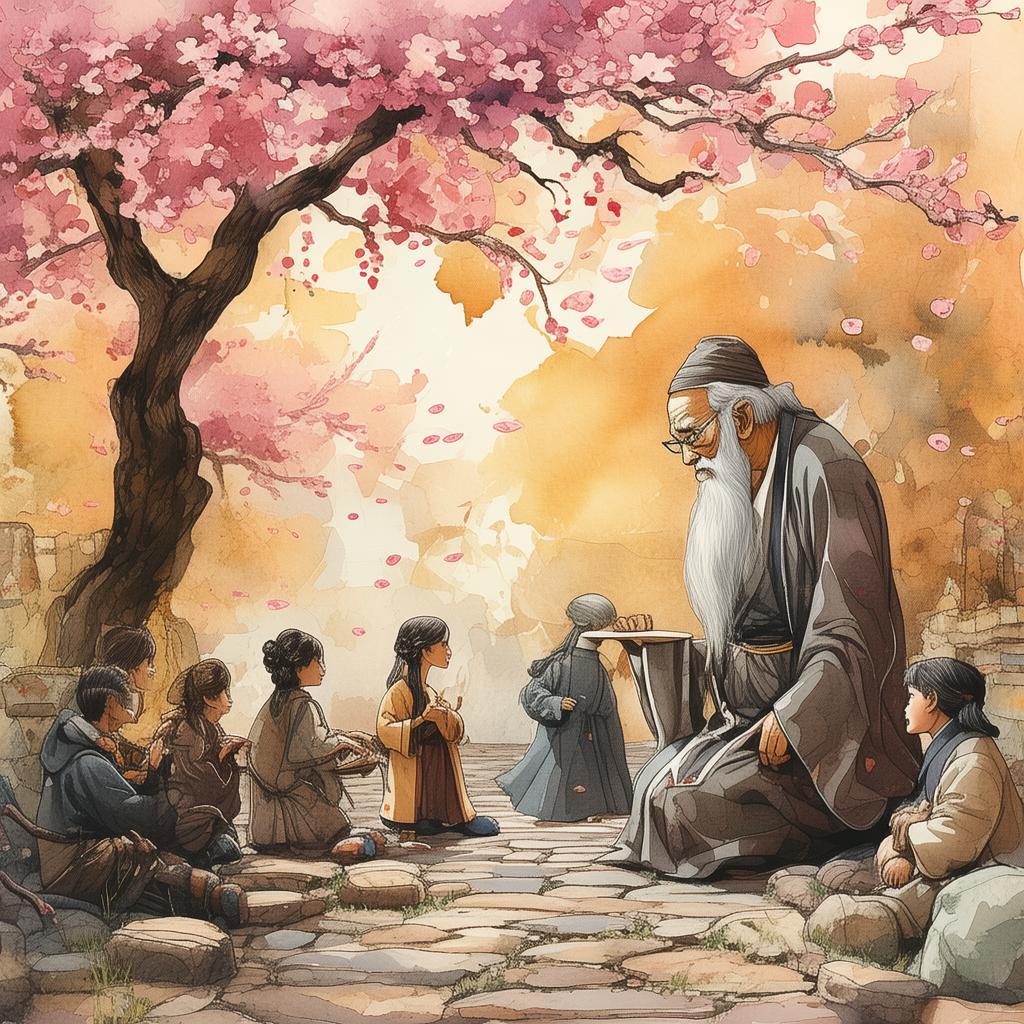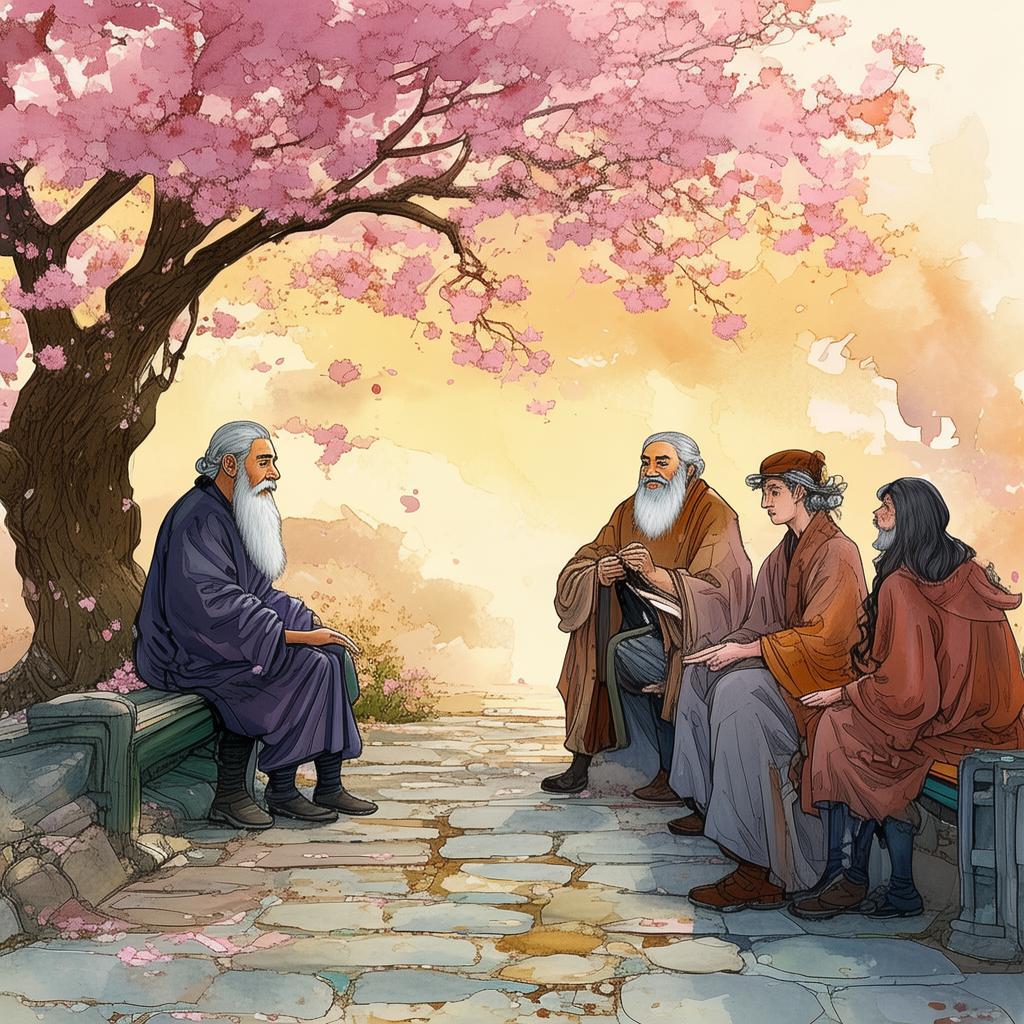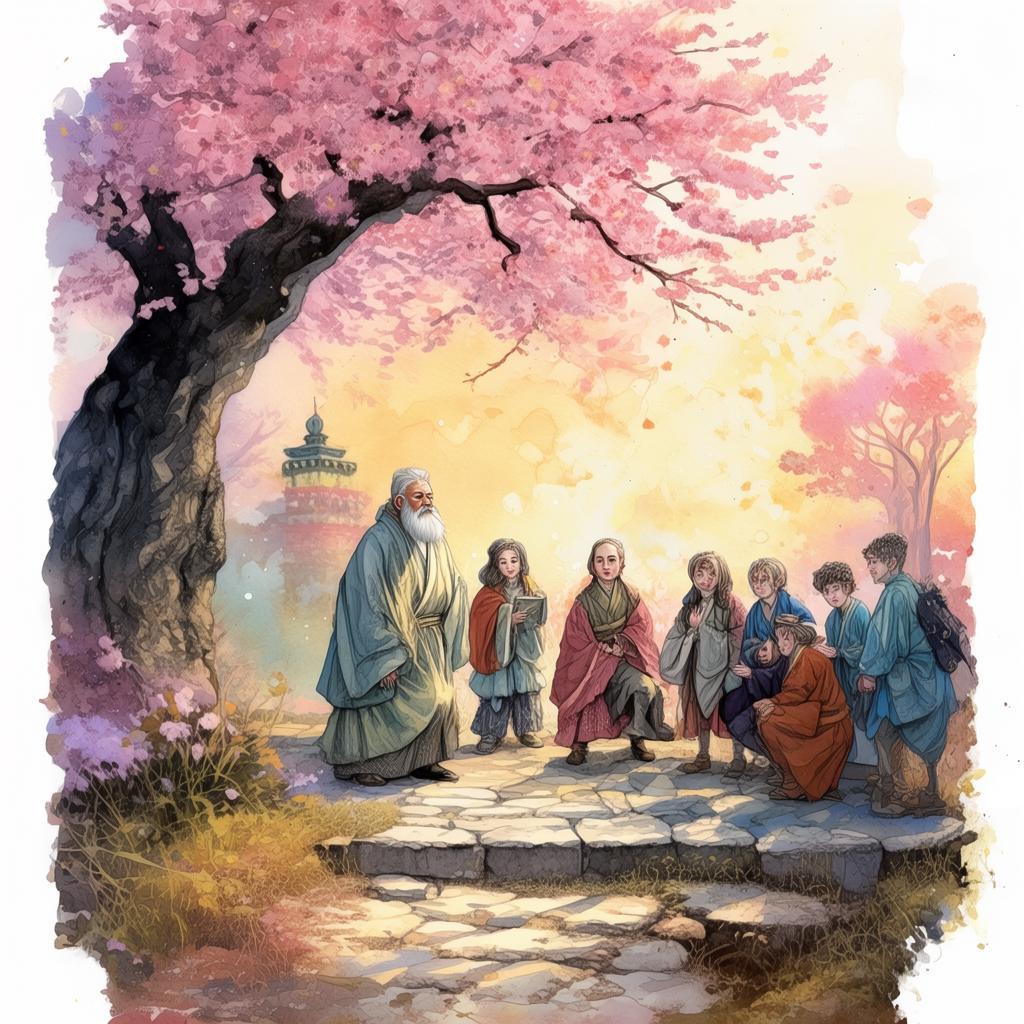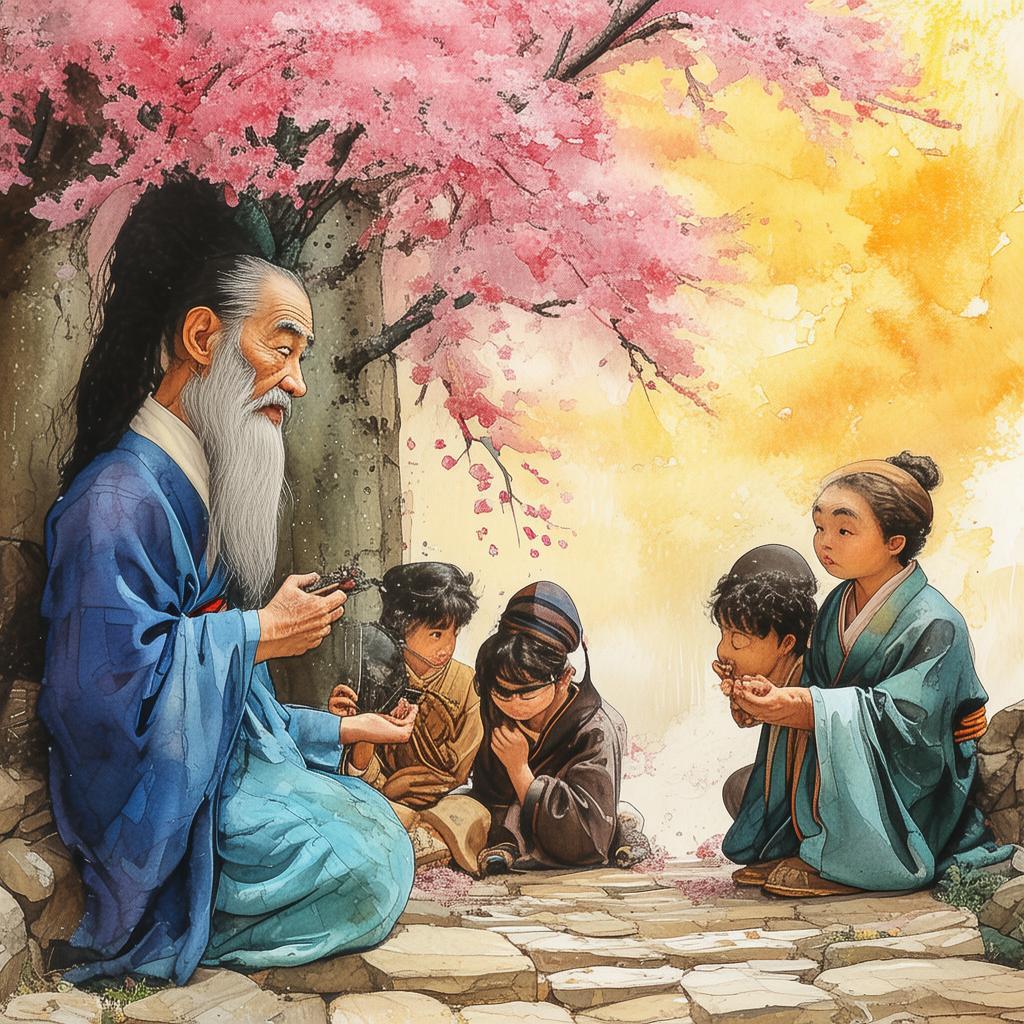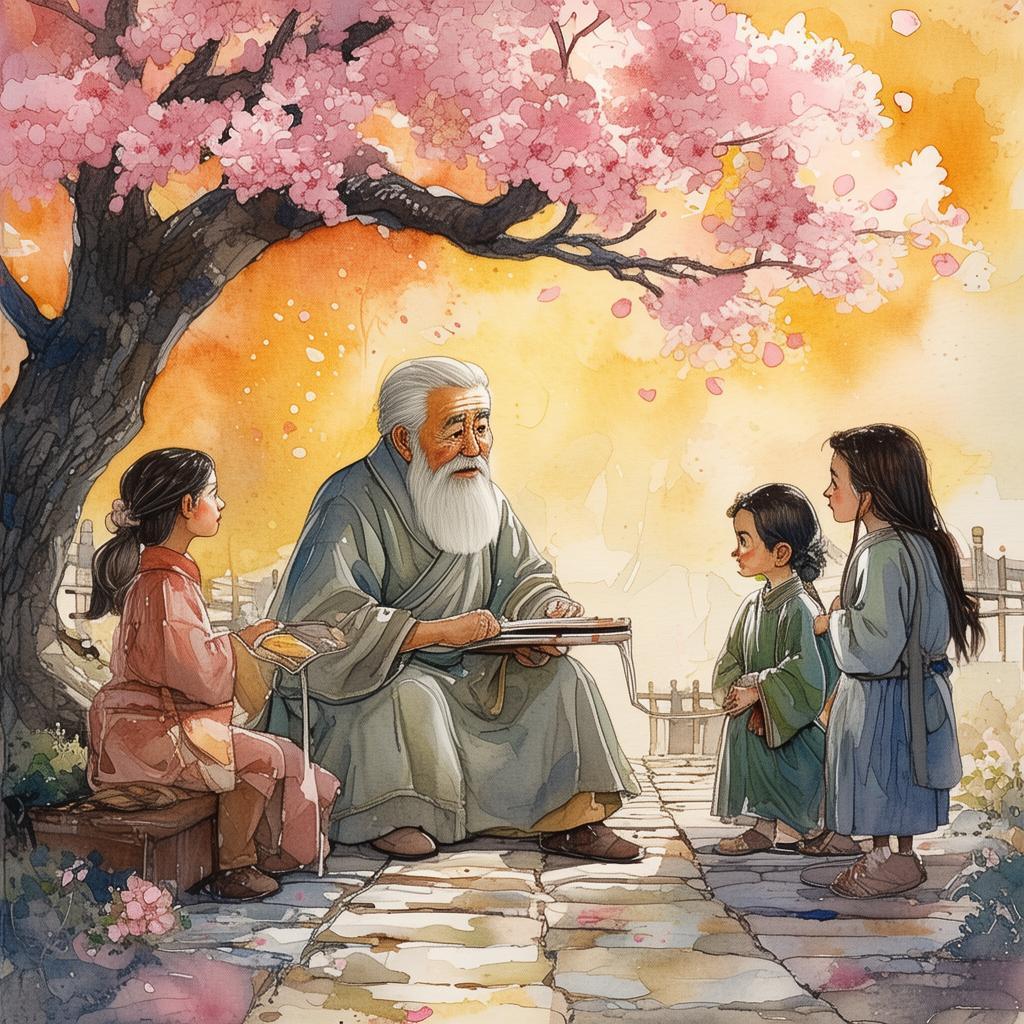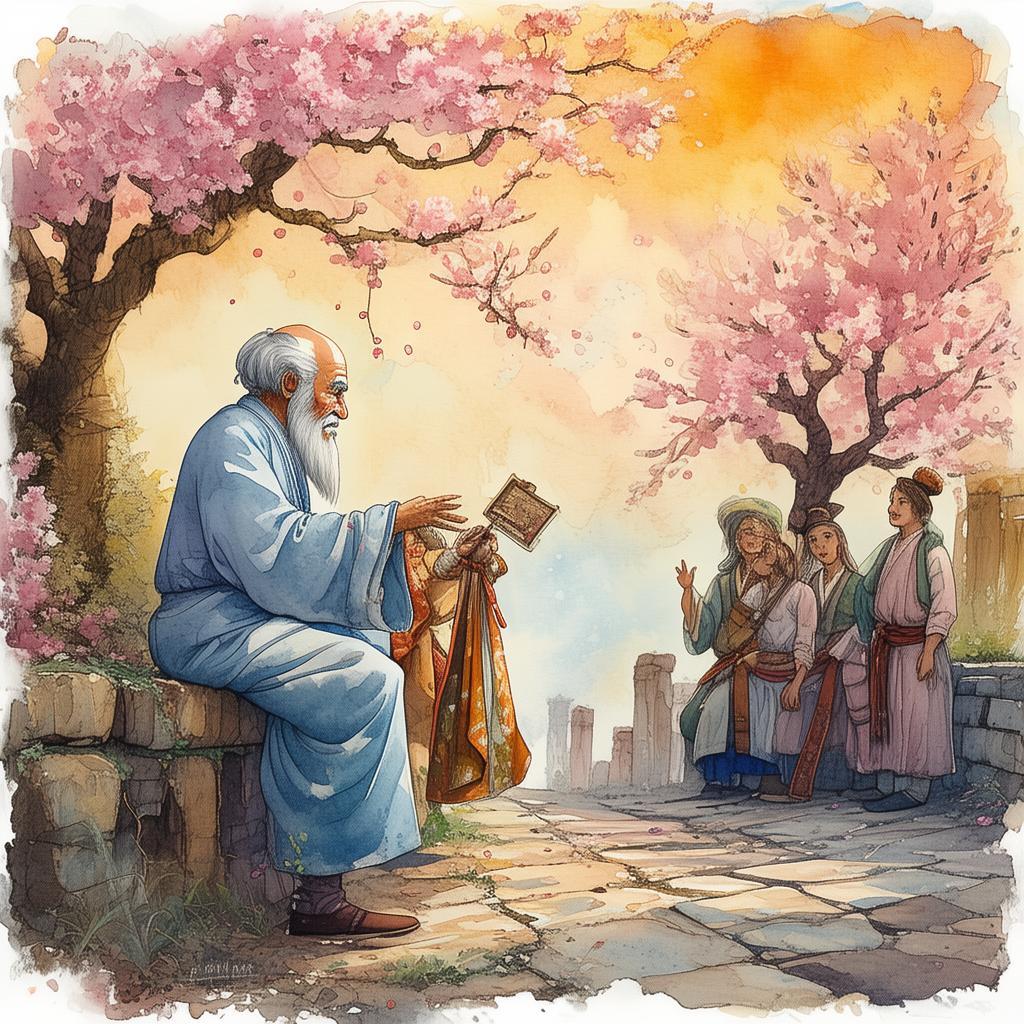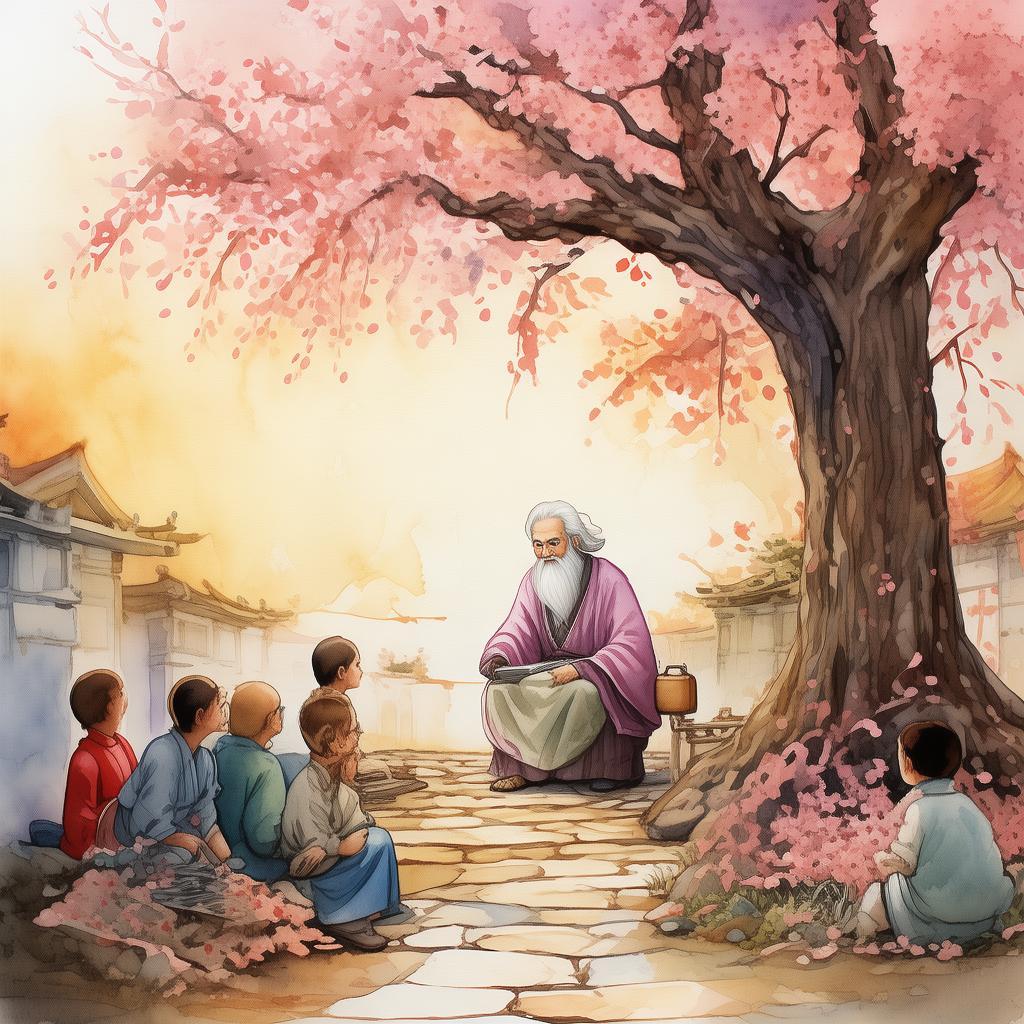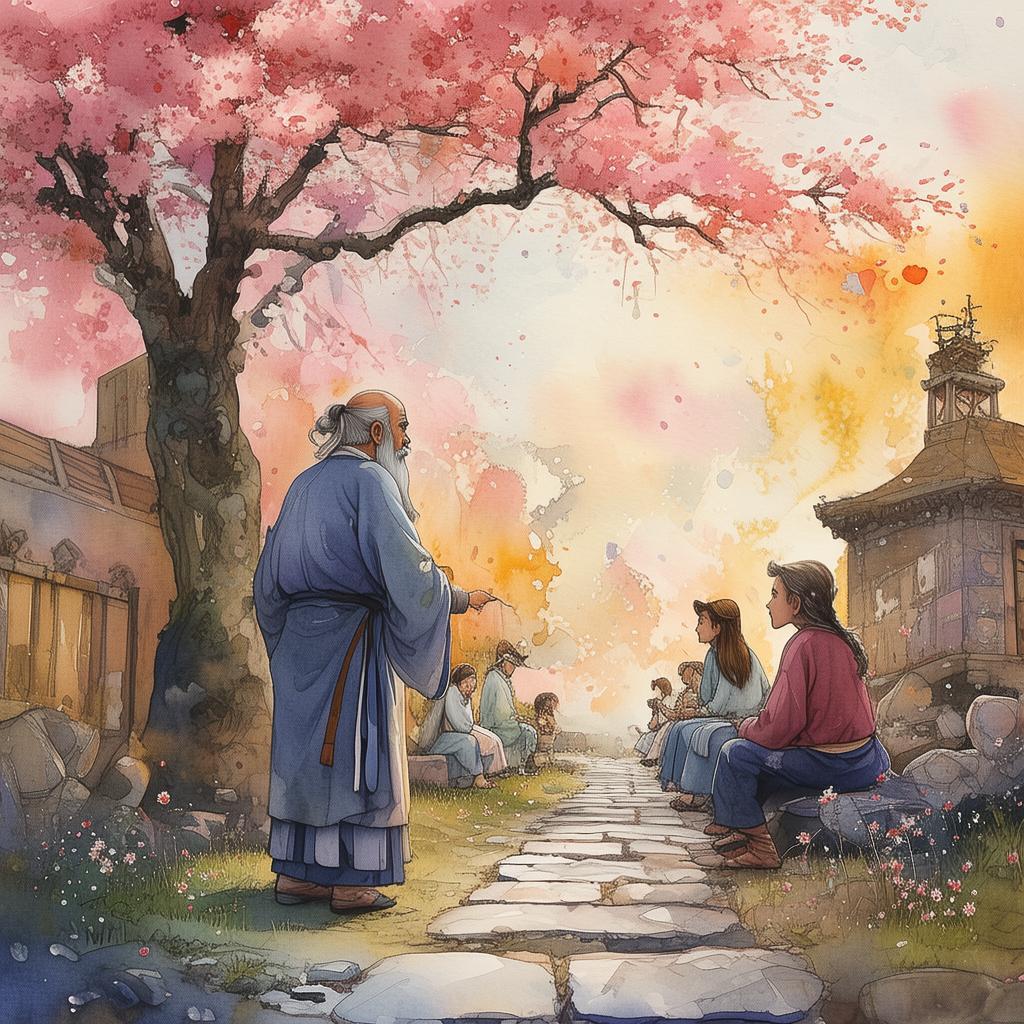The Unnamed Legacy: The Unseen Mirror
In the heart of an ancient city shrouded in mist, there stood a forgotten temple, its walls etched with the whispers of a bygone era. The temple, known to none but the city's oldest inhabitants, was said to house a mirror with the power to reveal the unspoken truths of the soul. This was the legend that had been passed down through generations, a tale that intrigued but never truly fascinated anyone until the arrival of a young man named Ming.
Ming was an ordinary man with an extraordinary secret. He had always felt the weight of an undefined legacy, a legacy that seemed to follow him wherever he went. His father, a man of many names and faces, had vanished without a trace when Ming was but a child. The only thing he had left behind was a single, mysterious mirror, which Ming had always kept hidden in the attic of his grandmother's house.
As Ming grew, the mirror remained untouched, a silent guardian of his family's past. But one fateful night, driven by a sense of urgency and the yearning to understand his identity, Ming retrieved the mirror from the dusty attic. The glass was cracked, the frame worn, but the mirror's surface was still pristine, reflecting the light with a serene calm.
He placed the mirror on his grandmother's old wooden table and stood before it. To his astonishment, the image in the mirror shifted, revealing not the room he stood in, but a reflection of another time and place. The reflection was of a grand hall, filled with people dressed in the finery of centuries past. Ming's reflection was among them, standing tall and proud, surrounded by a crowd of admirers.
In that moment, Ming understood that the mirror was not just a reflection of his physical form, but a window to his soul's history. He was part of a legacy that spanned time, a legacy of power, mystery, and unspoken truths. The crowd began to whisper, and Ming felt their voices resonate within him, a symphony of unspoken words and hidden secrets.
He reached out to the mirror, his fingers trembling with anticipation, and touched the surface. The image shifted again, revealing a different scene. This time, Ming was in a forest, surrounded by ancient spirits that seemed to know him by name. They spoke of his lineage, of a time when he was a guardian of the soul, a bridge between the living and the dead.
The mirror continued to show him visions of his past, each more vivid and real than the last. Ming saw himself as a warrior, a poet, a philosopher, and even a villain. Each vision revealed a piece of his soul, a piece that had been lost to him for so long. He was a mosaic of lives, a tapestry of experiences that had shaped him into the man he was now.
As Ming delved deeper into the mirror's mysteries, he began to understand that his legacy was not just a collection of past lives, but a testament to the unspoken truths that lay within his soul. The mirror showed him the shadows of his past, the pain and the joy that had forged his character. It was a reflection of the soul's journey, a journey that had no beginning and no end.
The visions grew more intense, and Ming felt himself being pulled into a vortex of memories. He saw himself make choices that had shaped the course of history, choices that had determined the fate of nations. He saw the love he had given and the love he had lost, the triumphs and the failures that had defined his existence.
Then, the mirror showed him a vision that sent a shiver down his spine. He saw himself standing at the edge of a cliff, looking out over a chasm that symbolized the divide between the living and the dead. In that moment, Ming realized that his true power lay not in the memories of his past lives, but in the present moment, in the choice to embrace his legacy and live fully.
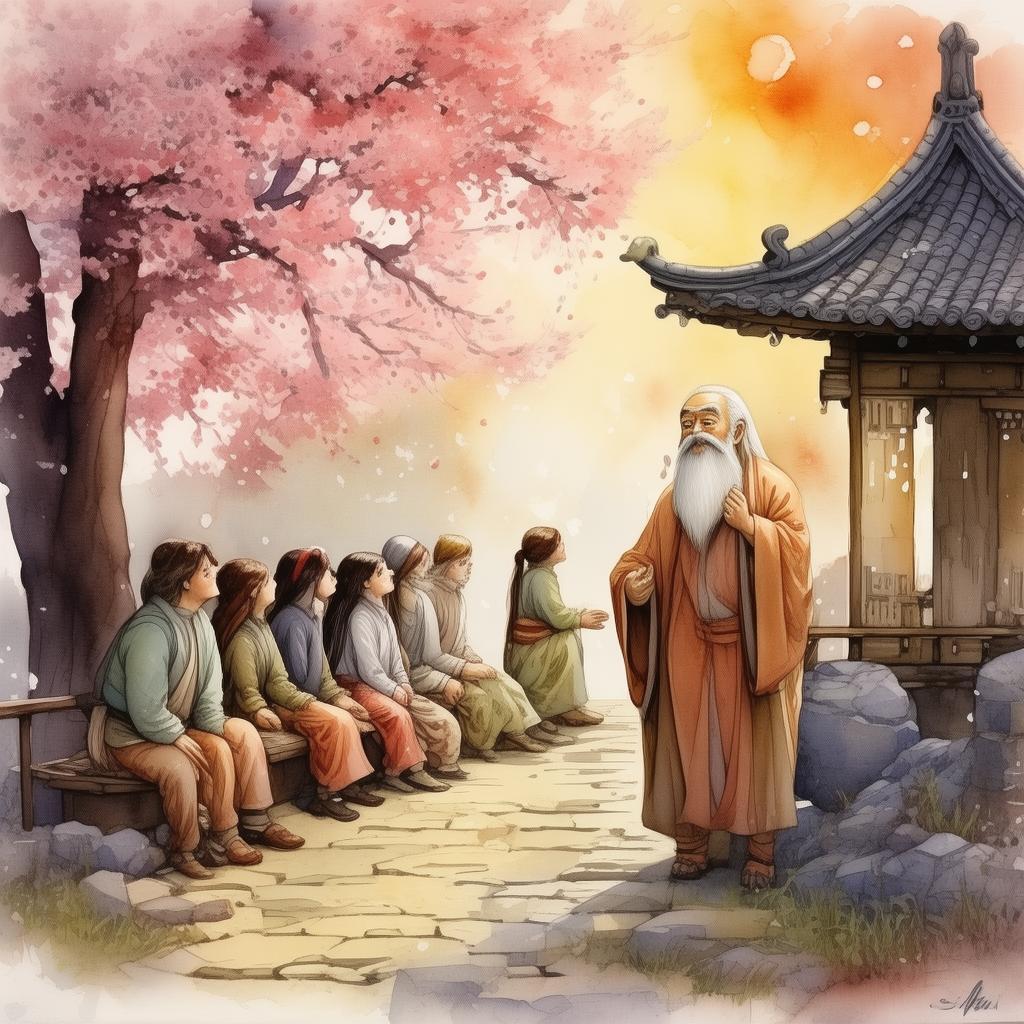
With a newfound clarity, Ming stepped away from the mirror, its surface now void of images. He felt a sense of peace and purpose wash over him, a peace that had eluded him for so long. He knew that his journey was far from over, but he was ready to face it with the knowledge of his true self and the legacy that he had inherited.
In the days that followed, Ming set out to uncover the unspoken truths of his soul, to understand the full extent of his legacy. He traveled to far-off lands, sought out ancient texts, and conversed with those who had seen the depths of his soul. Through it all, he discovered that the mirror had not only shown him his past but had also given him a glimpse into his future.
The mirror was a symbol of the soul's journey, a journey that required courage, wisdom, and a willingness to face the unspoken truths that lay within. Ming had chosen to embrace his legacy, to become the guardian of his own soul, and in doing so, he had found the true meaning of his existence.
And so, the legend of the mirror spread through the ancient city, a tale of a man who had uncovered the unspoken truths of his soul and embraced his legacy. It was a story that would be told for generations, a reminder that the power to understand and shape one's destiny lay within each of us, waiting to be revealed in the mirror of our souls.
✨ Original Statement ✨
All articles published on this website (including but not limited to text, images, videos, and other content) are original or authorized for reposting and are protected by relevant laws. Without the explicit written permission of this website, no individual or organization may copy, modify, repost, or use the content for commercial purposes.
If you need to quote or cooperate, please contact this site for authorization. We reserve the right to pursue legal responsibility for any unauthorized use.
Hereby declared.
